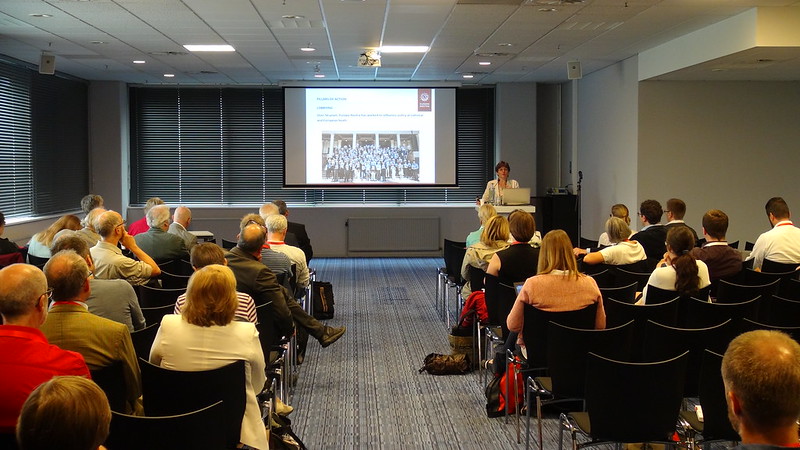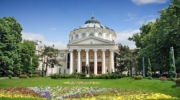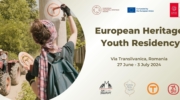Secretary General delivers lecture at European Association of Archaeologists Conference in Maastricht
Coinciding with the 25th anniversary of the Maastricht Treaty on the European Union and the Valletta Convention on the Protection of Archaeological Heritage, the European Association of Archaeologists (EAA) held its 2017 Conference “Building Bridges” in Maastricht from 30 August to 3 September. Upon invitation of the EAA (Europa Nostra member and member of the European Heritage Alliance 3.3) and its President Felipe Criado-Boado, Europa Nostra’s Secretary General Sneška Quaedvlieg-Mihailović delivered one of the conference’s keynote lectures on archaeology and the future of Europe. In front of a large audience composed of prominent archaeology and heritage experts, she conveyed key Europa Nostra messages on the growing need to put higher emphasis on our shared culture and history as a cohesive force for Europe’s future.
“For a Renaissance of the European Project: Archaeology as a key tool for unveiling Europe’s memory and identity”
In her introductory remarks, Europa Nostra’s Secretary General recalled “the importance of Building Bridges: not only between the European community of archaeologists and heritage stakeholders on one side and the wider world of politics, but also between us, the heritage stakeholders, heritage professionals, heritage volunteers and heritage activists”. At a time when not only our heritage, but also the European project are facing many threats, it is vital to join forces and demonstrate that Europe matters to all of us.
Referring to the legal basis of the EU’s competence in the field of culture and the related milestone documents, such as the Maastricht Treaty, the Valletta Convention and the EU Agenda for Culture, Sneška Quaedvlieg-Mihailović underlined the next step forward, introduced with the Lisbon Treaty and its article 3.3, which places the safeguard of cultural heritage among the goals of the European Union. These positive policy developments at the European level, together with a greater involvement of heritage civil society organisations, benefitted the lobby for the European Year of Cultural Heritage 2018, which was consequently accepted by all EU institutions.
“In response to so many national, European and global challenges, we are today facing some encouraging signs of a renewed political commitment to the European project based on a set of European values. (…) The forthcoming European Year of Cultural Heritage in 2018 provides a perfect opportunity for such a shift in EU policy and funding priorities,” argued Europa Nostra’s Secretary General. However, she reminded the audience of the immense challenge that lies ahead, including the movement of and for archaeology: “We all have to become aware that by preserving and promoting our heritage – we are not only preserving our culture and our memory, we are also preserving our Europe for which we have a shared responsibility”.
After illustrating her contribution with examples of outstanding archaeological projects from various parts of Europe that have received the European Union Prize for Cultural Heritage / Europa Nostra Awards in recent years, Sneška Quaedvlieg-Mihailović concluded her lecture by stressing the need to put more emphasis on the soft power of Europe.
The EAA Annual Meetings are the highlight of the EAA year, bringing together archaeology experts from all over Europe to discuss important issues in research, heritage management and commercial practice, ethics and theory, and the newest results of fieldwork. With over 2,000 delegates and 150+ sessions, the EAA Annual Meetings have grown to be an essential event on the European archaeological scene. The friendly atmosphere and lively social programme provide excellent opportunities for networking.








